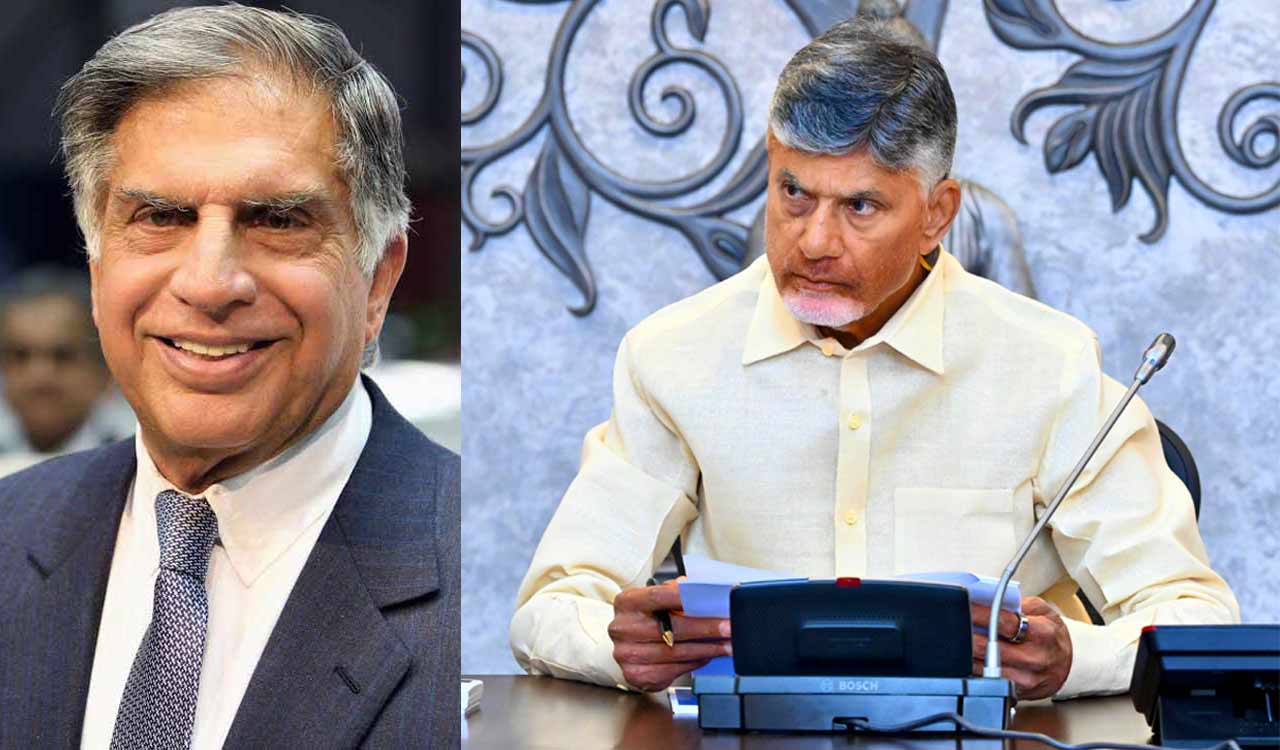Opinion: Why we need more Ratan Tatas
It is time we went back to social consciousness in every decision the business makes – grow but grow together

By T Muralidharan
If India is to reach the ambitious milestone of a $10 trillion economy, we will need more than just rapid industrialisation — we will need at least ten Ratan Tatas. Let me explain.
In Sanskrit, “Ratan” means “jewel,” and it’s clear that when his father named him, he saw something special that we only fully realised much later. A jewel possesses key qualities that make it invaluable: rarity, brilliance, clarity, durability, harmonious balance and authenticity. These qualities also define Ratan Tata.
• Rarity: His leadership was marked by a rare combination of vision, humility and ethical strength.
• Brilliance: Ratan Tata’s ability to innovate and steer the Tata Group into global prominence shines bright in India’s business landscape.
• Clarity: His transparency in decision-making was a rarity in today’s business world.
• Durability: Through economic crises and political changes, Ratan Tata’s commitment to his values remained unwavering.
• Harmonious balance: His leadership had been about balancing profit with purpose — growing businesses while uplifting society.
• Authenticity: There was an undeniable genuineness in his commitment to ethical business, which resonates deeply.
Most would agree that Ratan Tata exemplified these qualities. But what stands out most for me was his trusteeship — the sense that he was a steward of the empire he inherited. He grew it and passed it on while playing the game with a straight bat.
If a business makes money unethically or makes usurious profit and spends 2% of it on CSR, it is just a guilt tax
One story comes to mind: during a meeting with a telecom minister, Ratan Tata was faced with a blatant demand for a special payment. Refusing outright, he suffered significant losses as the Tata Group exited the telecom retail business. His commitment to ethics outweighed short-term gains, something only a few in his position could have managed.
The Two Values Ratan Tata lived by two values:
• Doing business ethically and fairly: Business should not thrive at the expense of others. This includes customers, employees, suppliers and — most importantly — the community in which it operates. As he once said, “I don’t believe in taking right decisions. I take decisions and make them right.” Social consciousness is the idea that businesses should balance profit-making with social impact. Philanthropy and capitalism must be genuinely combined innovatively as a way of doing business. The unintended consequence of the CSR rules is the separation of business and philanthropy. This means that you can do business any which way you want if you give 2% of your profits as philanthropy. This artificial separation of business conduct and CSR is very counter-productive.
• Doing good is good business: CSR isn’t a tax to be paid after conducting business unethically. Real corporate responsibility lies in embedding fairness into the core of the business. As Ratan Tata famously put it, “Businesses need to go beyond the interest of their companies to the communities they serve.”
In earlier days, the Tata group set the standard for social consciousness while running their business. In his 2019 article in a leading magazine, titled ‘Tata Steel’s 99-year-old trade union hasn’t seen a strike since 1928’, business journalist Prince Mathews Thomas ascribed this enormous feat to trust between the union and the management – “Its 1956 agreement with the management is known as the ‘magna carta’ of the working class, bringing better benefits, and enabling workers’ representation across the organisational structure.” This is a classic example of management’s foresight and the exemplary response of the union to keep politics out and work closely with the management.
However, I’ve found two downsides to running a business by these values: slow growth and extraordinary effort. But I’ve accepted this, knowing it is the right path. Ratan Tata demonstrated that rapid growth without losing one’s soul is possible. I am still learning this balance.
There are countless stories about Ratan Tata and his predecessor, JRD Tata, both icons of ethical leadership. Personally, I had the rare opportunity to meet him in Vijayawada. I remember how he arrived with no entourage, spoke crisply and left quietly — no fuss, no grandeur, just purpose.
Ticking Time Bomb
India is home to many successful entrepreneurs — over a hundred billionaires, in fact. Yet, we live in a world where the rich are getting richer, and the poor are left behind. The disparity in wealth is a ticking time bomb. To defuse it, we must adopt and live by the values of fairness and responsibility in business.
The ultimate benefit is that the enterprise will have balanced its obligations to all stakeholders instead of focusing only on its shareholders. The ultimate purpose of any enterprise is to be relevant and beneficial to the society in which it operates, and this can be met only if the business practices are socially conscious in every decision and avoid mercenary behaviours.
Unintended consequences of CSR Rules
• Compliance burden increased on the board and CSR became a compliance issue rather than a social responsibility issue.
• Some companies saw this as an imposition and learnt the art of ‘managing’ the CSR rules.
• Some saw this as a donation opportunity and decided to spend on people they cared about (hometown of the promoter) or on projects where they were pressurised to give CSR money.
• Some turned this into a branding opportunity and took part and won awards in CSR competitions to show how caring they were, without really caring.
These behaviours beat the very purpose and spirit of CSR. The way CSR is now evolving is to keep the letter but not its spirit. It is time business enterprises went beyond CSR. It is time we went back to the National Voluntary Guidelines of 2011. It is time we went back to social consciousness in every decision the business makes. If a business makes money unethically or unfairly or makes usurious profits and spends 2% of its profit on CSR, it is just a guilt tax.
This is how we can honour Ratan Tata’s legacy and, more importantly, create more “Ratans” in our society. Let us grow but let us grow together.

(The author is Talent Management expert and independent journalist)
Related News
-
Cartoon Today on December 25, 2024
7 hours ago -
Sandhya Theatre stampede case: Allu Arjun questioned for 3 hours by Chikkadpallly police
8 hours ago -
Telangana: TRSMA pitches for 15% school fee hike and Right to Fee Collection Act
8 hours ago -
Former Home Secretary Ajay Kumar Bhalla appointed Manipur Governor, Kerala Governor shifted to Bihar
8 hours ago -
Hyderabad: Organs of 74-year-old man donated as part of Jeevandan
8 hours ago -
Opinion: The China factor in India-Nepal relations
8 hours ago -
Editorial: Modi’s Kuwait outreach
8 hours ago -
Telangana HC suspends orders against KCR and Harish Rao
9 hours ago




